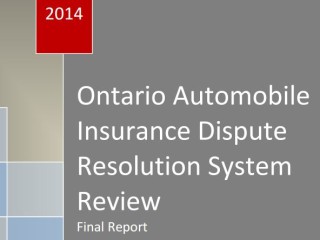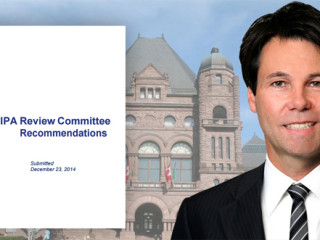On a proper interpretation of the Occupier’s Liability Act, one occupier can owe a duty to another occupier.
Brief Background
The appellant was moving out of the respondent’s home after their relationship ended. He tripped on the sidewalk while carrying his freezer out of the home and injured his ankle. He sued for damages under the Occupier’s Liability Act, R.S.O. 1990, c. O.2. The respondent moved for summary judgement and was successful in dismissing the claim.
The motion judge gave two reasons for dismissing the action.
- The respondent, as an owner and occupier of her premises, did not owe the appellant a duty of care under the Occupier’s Liability Act because he was also an occupier of the premises.
- If the respondent did owe the appellant a duty of care, the appellant did not prove a breach of duty because he did not prove there was any unevenness on the sidewalk that constituted a hazard, and if there was, he was aware of it.
The Appeal
The Court of Appeal deferred to the motion judge’s findings of fact with respect to the second ground and dismissed the appeal on that basis. However, the motion judge erred in law in her interpretation of the Occupier’s Liability Act by finding that an occupier cannot owe a duty of care to another occupier.
During the summary judgement motion, the parties were unable to refer the motion judge to any case where one occupier had sued another for this type of accident. The motion judge accepted the respondent’s argument that the reason there was no case law was because there is no cause of action. The motion judge accepted that “the legislation was never intended to permit co-occupants to sue each other under the Occupiers’ Liability Act. It stands to reason that a co-occupant is not an entrant on the premises as envisioned by this legislation.”
The Court of Appeal did not reach the same conclusion and delved into the history of the Occupier’s Liability Act.
A) On a proper interpretation of the Occupier’s Liability Act, one occupier can owe a duty to another occupier
Section 2 of the Occupier’s Liability Act provides that subject to specifically identified exceptions in s. 9 (where a higher duty is owed), the Act applies in place of the common law. The Act establishes that it is intended to be exclusive and comprehensive, effectively constituting a complete code with respect to liability of occupiers.[i]
Therefore, one must look to the Act to determine any occupier’s liability.
Section 3 of the Occupier’s Liability Act describes the duty of care owed by an occupier to “persons entering on the premises.” While the “occupier” and “premises” are defined terms in the Act, “persons entering on the premises” is not defined. There is nothing in the Act to suggest that such persons cannot also be occupiers.
First, we know from s. 2 that the Act replaces the common law duties that were owed to the previously defined classes of entrants: licensees, invitees, trespassers, and contractual entrants. Therefore, persons entering on the premises” includes everyone who fit into the former categories. To the extent that those categories could possibly have excluded anyone, there is no exclusion that arises from the words or phrase “persons entering on the premises”.
Second, the temporal scope of the duty of care that extends over the time “while on the premises” also indicates that the duty is owed to other occupiers.
Third, the Act includes a number of exclusions from the duty of care. The statutory interpretation maxim, “expressio union” or “implied exclusion” applies here. If the legislature had intended to exclude other occupiers from “persons entering onto the premises”, it would have done so along with the other exclusions.
B) In spite of the existence of duty, the paucity of cases may have other explanations
There are likely many reasons why the parties could not find cases where one occupier sued another occupier in the past.
One explanation may be the defence of willing assumption of risk. Another might be unavailability of insurance. For example, where one spouse in a family home is injured, that spouse is unlikely to sue unless there is insurance available. If a home insurance policy contains an exclusion for bodily injury to you or any person residing in your household other, a co-occupier may be excluded under some policies of insurance.
While there may be explanation for why, in practice, occupiers do not often recover from other occupiers, but there are situations in which this should be possible.
[i] MacKay v. Starbucks Corp, 2017 ONCA; Schnarr v. Blue Mountain Resorts Limited, 2018 ONCA 313













